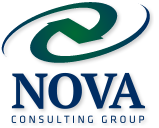The concept of Net Promoter scores has been part of the executive vocabulary for some time now. It was introduced by Fred Reichheld, a Fellow at Bain in 2003.
It is a way of doing business that requires every level of the organization be rigorously, consistently focused on the quality of customer and employee relationships first. As Reichheld states, “Net Promoter companies commit to specific processes and systems that help everyone focus on earning the passionate loyalty of both customers and employees.”
The standards for success are not easily attained. Once adopted it forces the organization to look at the longer term. Unlike financial accounting rules that tempt companies to chase short-term profits at the expense of customer loyalty, a Net Promoter system requires—and inspires—an entire organization to do right by its customers and employees. The business benefits are substantial:
- Loyal customers stay longer
- Spend more
- Refer you to their contacts and offer positive feedback
- Contribute feedback that helps you grow your company
Loyalty also “correlates so strongly with sustainable, profitable organic growth…”(Reichheld 2003). In fact, studies show that, on average, industry loyalty leaders experience twice the growth as their competition.
Reduced to the simplest terms, a Net Provider System has just three requirements:
- Regularly sort their customers into three simple groups: promoters, passives and detractors.
- Develop processes for short-cycle, closed-loop feedback, learning, recovery and action.
- Make it a top priority to earn the enthusiastic loyalty of customers and employees.
True leaders of Net Promoter organizations realize that the score is only the tip of the iceberg. They understand that there are additional metric and tasks associated with “earning the passionate loyalty of both customers and employees” They understand that they must set into place robust processes and practices to insure success. Some highlighted by Reichheld, include:
- Accurate scorekeeping – develop, refine and test sampling data
- Loyalty economics – determine differing lifetime value of promoters, passives and detractors
- Root-cause searches – what root causes that contribute to the customer experience
- Closed-loop procedures – continual feedback to employees and constant contact with customers
- Learning – experiment with what works
- Action – resolve individual customer issues; WOW them
- Robust support systems – integrate Net Promoter systems into your business systems
- Commitment and communication – leaders must commit and communicate
In the new economy where customers want what they want, when they want it and how they want it, new paradigms challenge traditional thinking. At The Nova Consulting Group, we encourage our clients to become familiar with and adopt a Net Promoter culture.
The Nova Consulting Group works with our clients to develop sustainable sales methodologies which are scientific-based and supported with industry experience. At the core of our work is the understanding of the human element; that element which determines the success of any organization.


